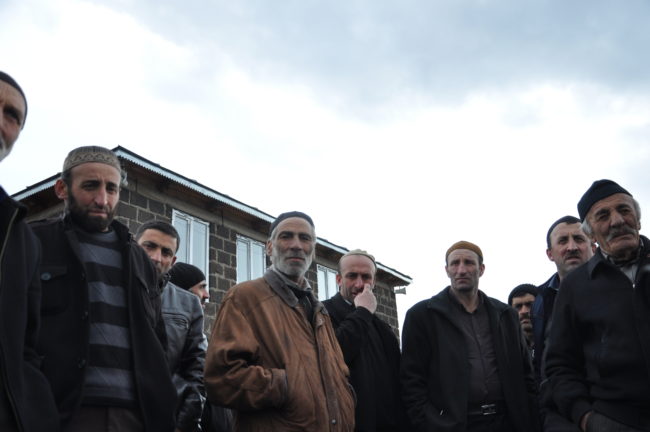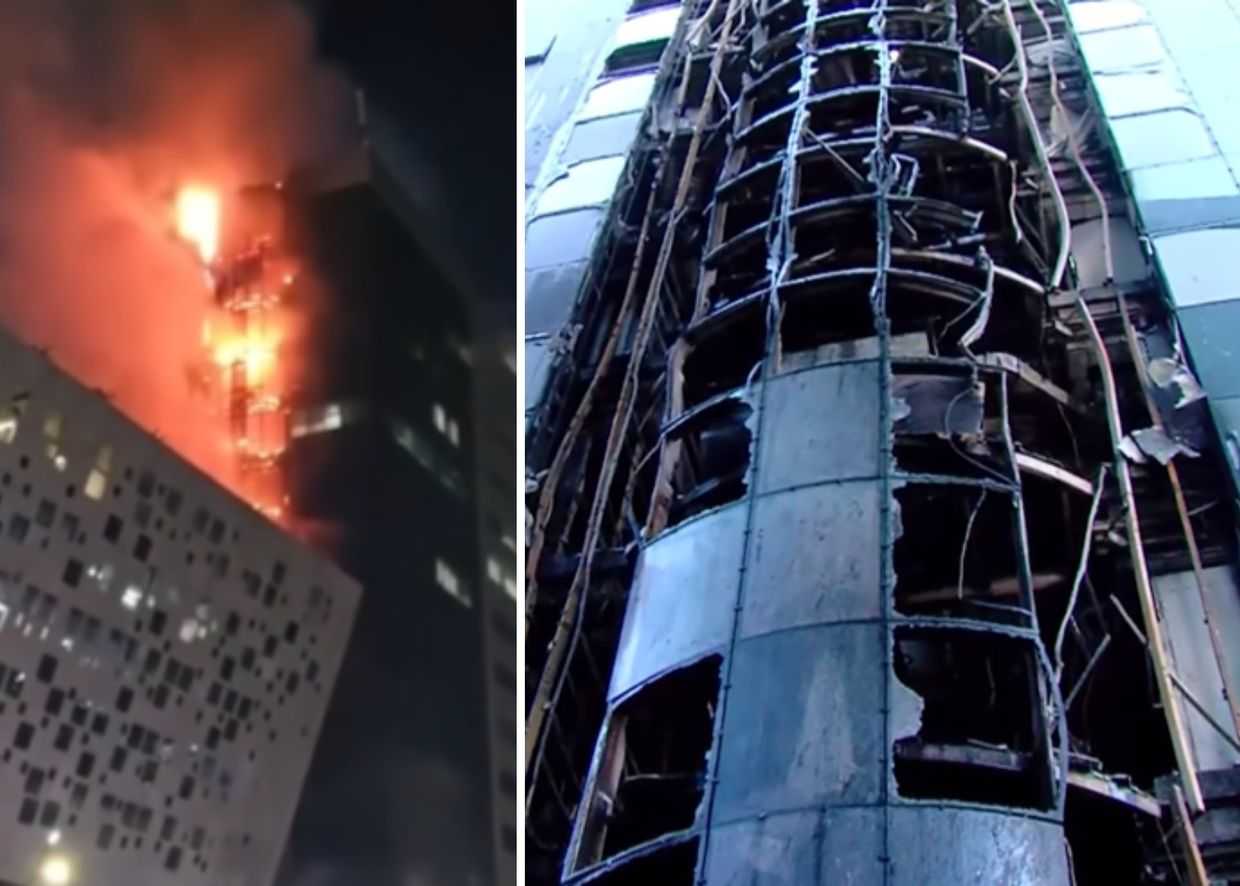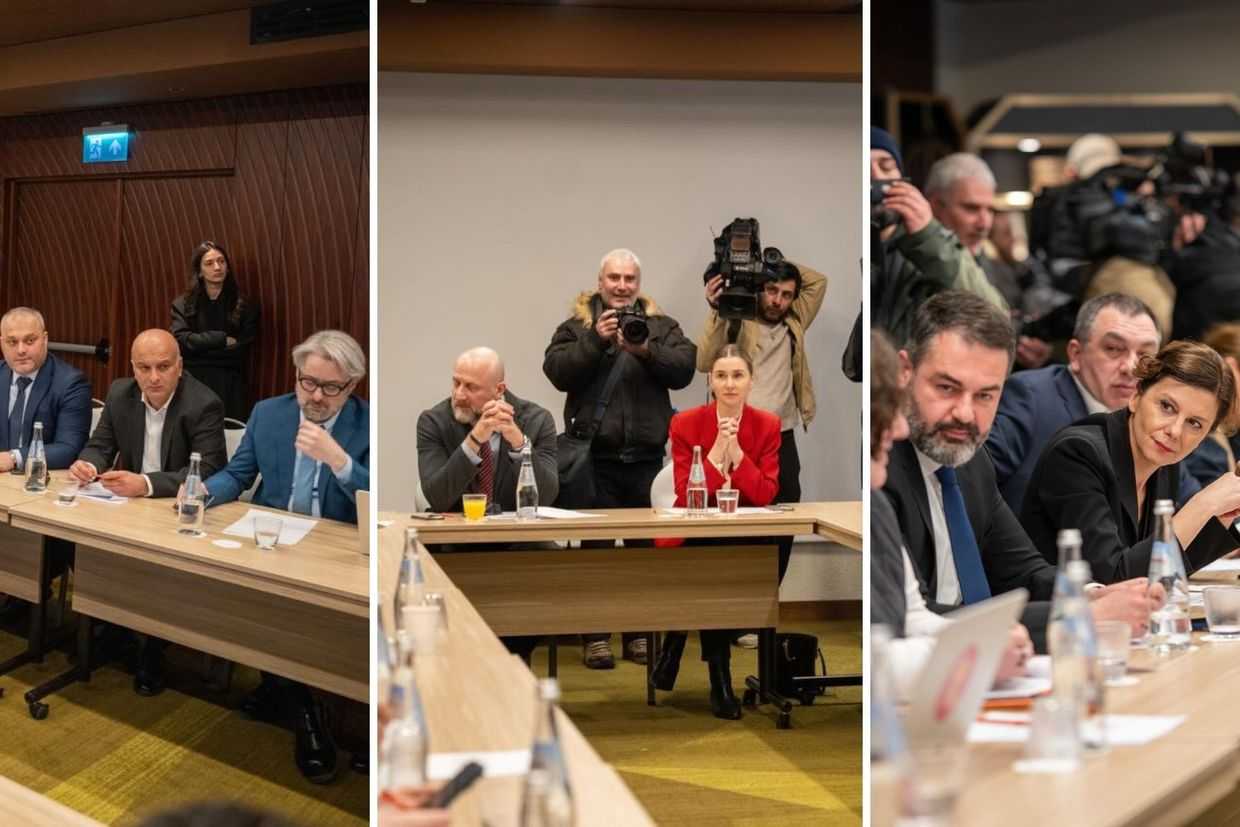

 Georgia’s Muslim community received a double blow on 11 May, when Batumi City Hall rejected a petition to construct a second mosque in the city and local authorities in the village of Mokhe rejected a request to transfer ruins in the village, allegedly of a mosque, to the local Muslim community.
Georgia’s Muslim community received a double blow on 11 May, when Batumi City Hall rejected a petition to construct a second mosque in the city and local authorities in the village of Mokhe rejected a request to transfer ruins in the village, allegedly of a mosque, to the local Muslim community.
For decades, Muslims in Batumi, the capital of the Autonomous Republic of Adjara on Georgia’s Black Sea coast, have demanded that land be allocated to construct a second mosque in the city. The city’s only current mosque, Orta, they claim, is too small to accommodate the local Muslim population, and every week during Friday prayers, worshippers are forced to stand outside. Despite repeated promises from the local and central governments, the problem has remained unresolved.
[Read on OC Media: Muslims in Batumi are becoming impatient for second mosque]
‘Batumi City Hall believes that the urban planning of the district [where the Muslim community wants to build the new mosque] should not be changed’, reads the short statement from Batumi City Hall.
The local initiative group which is coordinating attempts to construct a new mosque plans to appeal the decision in court.
Tariel Nakaidze, a member of the group and head of the Union of Georgian Muslims, says that the community will hold permanent rallies until the issue is resolved.
‘With this decision, the government has openly declared that they do not want to support the Muslim community to construct a second mosque’, Nakaide told journalists.
‘Grounds to assume discrimination’
In February 2017, the initiative group appealed to the City Hall once again asking for permission to construct a mosque. In 2016, when the initiative group was set up, Muslims collected money and purchased land in Batumi where they planned to begin construction, but the City Hall blocked the move.
According to local rights group, the Human Rights Education and Monitoring Centre (EMC), the rejection letter didn’t properly explain the reasons for the rejection.
‘The mayor’s decision is illegal, unjustified, and gives grounds to assume discrimination’, EMC wrote.
Disputed ruins in Mokhe
Also on 11 May, a special commission set up two years ago to decide the fate of disputed ruins in Mokhe, a village in Southern Georgia, decided to hand over the ruins to the Agency of Cultural Heritage Protection. The local Muslim community had wanted to reconstruct the disputed ruins, which they claim used to be a mosque. In its decision, the commission insisted that Muslims will be offered a different location to construct a mosque in the village.
A conflict erupted in Mokhe in 2014 when the local government announced plans to build a cultural centre on the ruins. Local muslims demanded that they instead be handed over to them. A number of Christians from the village objected to the restoration of the ruins as a mosque, following which the government set up the commission to decide their fate.
The decision means that the ruins will now remain as they are. ‘The so-called Mokhe building is now on the cultural heritage list with the status of “disputed building”’, the commission’s decision read.
Another local rights group, the Tolerance and Diversity Institute, believes that the commission’s decision is a violation of the constitutional rights of Muslims.
‘This decision is a mechanism to freeze the problem and take the property from its historical owners’, Eka Chitanava, the institute’s director told Rustavi 2.
The decisions to prevent Muslims, who according to Georgia’s National Statistics Office make up 10% of the country’s population, from constructing places of worship, has raised concerns that they are treated unfairly. According to Tamta Mikeladze from the EMC, the two decisions on 11 May, in two different conflicts, indicate a systematic policy of discrimination towards Georgia’s Muslim community.









